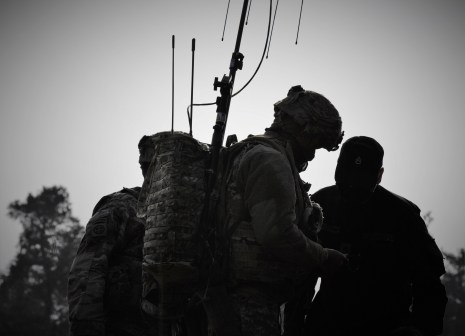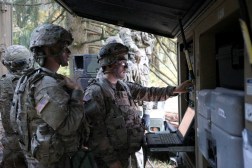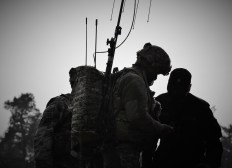Army planning open-architecture guidelines for contracts

The Army is working with industry to unify the technology it will buy for future platforms and vehicles by creating a modular and open-architecture approach.
Called the Common Modular Open Architecture (CMOA) initiative, the modernization push is in a feedback-seeking phase where the Army still hopes to hear more from industry. A team within the Office of the Chief Systems Engineer (OCSE) is developing the future contracting language and reference guides.
The service recently completed its first industry day event on how best to balance the military’s desires for interoperability and industry’s push to keep intellectual property rights for competitive advantage. Open-architecture technology has grown in popularity recently for the ease of upgrading and swapping out pieces of software in a system, but commercial companies are often reluctant to break away from building proprietary products.
“We want to have the flexibility to allow for modernization,” Jeannette Evans-Morgis, chief systems engineer and head of the CMOA initiative, said on a call with reporters Monday.
Evans-Morgis said her office is looking to make changes on areas considered “low-hanging fruit.” In that basket are data standards for programs like the Optionally Manned Fighting Vehicle (OMFV), the Army’s replacement for the Bradley Fighting Vehicle that has been a staple of Army operations for decades.
Starting with data interoperability and software reference guides will be a jumping-off point for the broad push to make it easier for the Army to “plug and play” new tech, Evans-Morgis said.
One of the outcomes the Army wants to see through this initiative is machine-to-machine data sharing. The OMFV is being designed with data and software as central elements so that it will operate like an iPhone that can constantly upgrade and download new applications through a common architecture, like the Apple App Store. But, using that analogy, many of the Army’s platforms would be the devices that need to be completely replaced to allow for upgrades.
The team behind the CMOA will be producing multiple kinds of documents to guide industry’s future work with the Army, including reference guides, contracting language and standards. Evans-Morgis committed to giving industry plenty of time to adjust its practices and tools to what the Army needs once those new documents are finalized and put into contract solicitations.
“That’s what really critical: We have to get it before we start writing those RFPs,” Evans-Morgis said.
The Army is encouraging more feedback on its plans from both industry and offices across the service that run programs like the OMFV.
“Obviously, this is always going to be a work in progress,” Evans-Morgis said.






